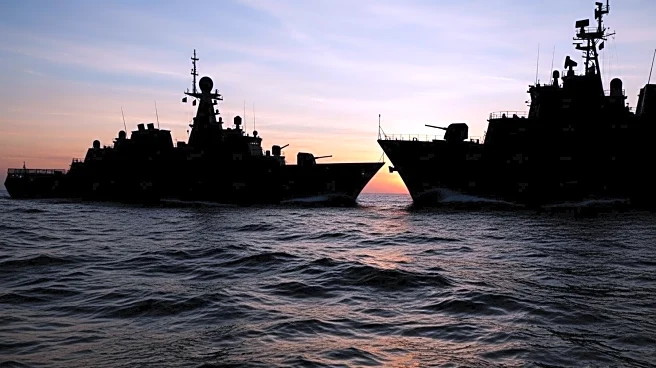What's Happening?
Chinese coast guard ships fired water cannons and rammed a Philippine government vessel near Thitu Island in the South China Sea. The incident involved the BRP Datu Pagbuaya, part of the Philippine fisheries fleet, and occurred amid ongoing territorial disputes. The Chinese coast guard accused the Philippine vessels of illegally entering Chinese waters, while the Philippines maintains its sovereignty over the area. The U.S. condemned China's actions, expressing support for the Philippines and praising the Filipino personnel for their valor.
Why It's Important?
This incident highlights the ongoing tensions in the South China Sea, a critical trade route with overlapping territorial claims. China's aggressive actions could escalate regional conflicts, affecting international relations and trade. The U.S. condemnation underscores its commitment to supporting allies in the region, potentially influencing diplomatic and military strategies. The situation may impact geopolitical dynamics, with countries like Japan, Australia, and the EU likely to support the Philippines, challenging China's territorial claims.
What's Next?
The Philippines may seek diplomatic resolutions or international support to address the territorial disputes. The U.S. and other allies might increase their presence in the region to deter further aggression. There could be calls for international arbitration or legal actions to uphold the 2016 ruling invalidating China's claims. The incident may also prompt discussions on regional security and cooperation among affected countries, potentially leading to joint military exercises or strategic alliances.
Beyond the Headlines
The incident raises questions about China's long-term strategy in the South China Sea and its implications for regional stability. The use of water cannons and ramming tactics reflects China's assertive approach to territorial claims, which may influence future interactions with neighboring countries. The situation also highlights the importance of international law and the role of global institutions in resolving territorial disputes, emphasizing the need for diplomatic engagement and conflict prevention.










